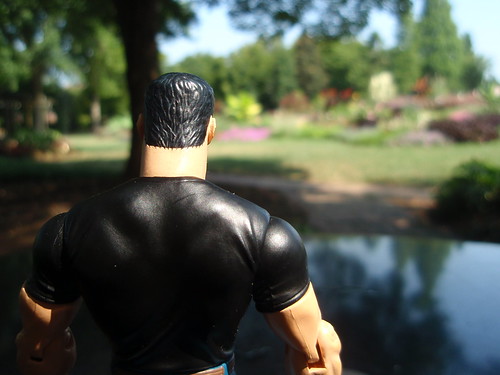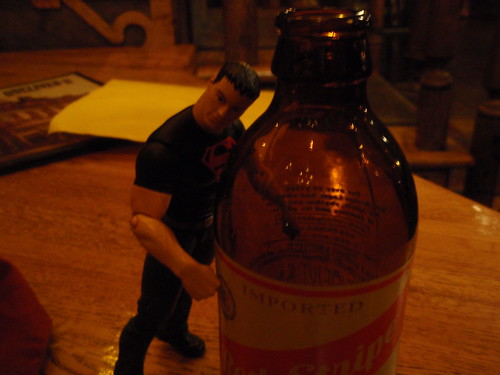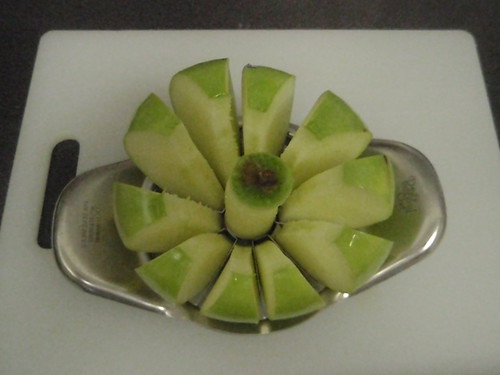This year, as I did in 2006, 2007,
2008,
2009,
2010, and
2011, I made it a goal to read one book per week, hopefully ending up with 52. Like I did last year, I managed not just to pass my goal (which happened some other years) but to rather spectacularly surge past it, and I ended up reading 74 books not counting comics/graphic novels and cookbooks.
Last year, my friend
Stan asked how and when I make time to read, and there was a huge change in my regular reading habits this year. Early in the year my boss, who I usually ate lunch with, took a job at another university. Although I now eat lunch with other people a few times a week, there are also a couple of days a week when I eat by myself, and get to read for an hour while doing so. I also traveled a little more often than usual, and tend to read a lot when I travel because I am cut off from my usual distractions. Other than that, though, it was pretty much business as usual around here except for the week when my internet was down and I read something like five or six books while waiting for Comcast.
Before I launch into my usual list, which tends to be a wall of words, I want to point out that I'm writing this entry a little differently this year: I'm going to include some random photos. Last year my friend Leo (who, long ago and far away, was one of my RA's) did an excellent
2011 in Pictures post (she did one for
this year, too, and you should look at both of them even if you don't know her because they are amazing posts), and inspired by her I did a roundup of my leftover pictures every month. At the end of the month, I took any photos that I'd liked enough to post to my flickr but didn't end up using in a blog, and did a roundup. There isn't one for November, because there weren't any leftover pictures, and I only had one leftover picture for December, which I'm going to stick in this entry. In order to break up the huge blocks of text, I'll be posting some random photos from my leftover picture entries, just to add some variety.
With all that said, let's get down to the books, some of which get paragraphs of reflection and some of which only get a sentence:
1) Did you ever wish that there was a gay
Twilight? Like, for real, instead of in fanfiction? If so, then Michael Griffo's
Unnatural is the book for you. The main character, coincidentally also named Michael just like the author, is taken to a boarding school in England by his absentee father after his mother kills herself, and despite being a social outcast at his old school he immediately becomes a popular water polo player and starts dating the hottest boy in all-boys school, who is immediately captivated with him for no reason! But his new boyfriend, who is his roommate's half brother, has a dark, terrible secret that could threaten their love and destroy Michael forever! Plus, instead of werewolves, there are two different kind of vampires: regular ones, and
vampires from Atlantis, and they're all fighting over Michael! There's a sequel to this book, too, but I have no intention of reading it. Once was enough.
2) Ransom Riggs'
Miss Peregrine's Home for Peculiar Children introduces us to Jacob, who has listened to his grandfather's stories his whole life of a mysterious orphanage off the British coast where his grandfather stayed in WWII, filled with peculiar children. After his grandfather's sudden death, Jacob finds an old collection of photographs that seem to show a levitating girl, a boy covered in bees, and other mysteries, and a cryptic message from his grandfather warning of danger. Travelling to the island, Jacob finds the orphanage, now a bombed out ruin, but he also finds that the orphange and the peculiar children do still exist, and they need his help. I really liked this book, and it was filled with old timey photos of peculiar children doing peculiar things.
3) In Jay Asher and Carolyn Mackler's
The Future of Us, it's 1996, and Emma is about to install AOL on her computer with a CD-Rom that her friend Josh brought over. Once she does, all she can access is something called Facebook, and all it shows her and Josh is that their adult lives are completely different from what they have planned. Over the next few days, Emma starts making changes in her life, hoping to avoid the future she sees on Facebook, but everything she does seems to make everything for her worse and Josh better, until another change that shows her that she and Josh aren't even friends anymore in the future. Now she has to decide what's really important to her, the here and now or a future that might not happen anyway?
I thought this book was interesting, but a few times they get too cute with the "people in 1996 have no idea that ________ will happen" and use it as a punchline.

4) Sheridan Hay's
The Secret of Lost Things tells the story of a young bookstore clerk who becomes involved in the hunt for a lost Herman Melville manuscript among the scheming, oddly eccentric staff at the giant used and rare bookstore in New York City where she works. The book starts out slow, and has an oddly anachronistic quality where the beginning seems to start in one era (the narrator's mother runs a hatmaker's shop until hats go out of fashion and she falls into debt) and the rest takes place in another (she flies to NYC, which has closed circuit TV and credit cards), but it was interesting and had a surprising ending.
5) Heather Gudenkauf's
These Things Hidden starts out as the sad story of Allison Glenn, who used to be the perfect daughter but then got pregnant, drowned her baby in the river, and went to prison. She gets out halfway through her sentence for good behavior, but her family won't talk to her, her sister is a mess, and it turns out that there are still a lot of things about that night that never came out. There are some twists, and the whole back half of the book is slowly increasing tension as the characters and terrible secrets get closer and closer to colliding.
6) Paul Neilan's
Apathy and Other Small Victories had a few passages that made me laugh out loud, but for the most part it was meandering, boring, and overall just not very good. It's kind of a murder mystery, more or less, except that I didn't really care who died or who did it.

7) I picked up Robert LaGuardia's
Monty at the used bookstore on my friend Sara's recommendation after I wondered what the hell happened to Montgomery Clift between
A Place in the Sun and
Suddenly Last Summer. What happened was, according to this biography, a lot of sad, terrible things.
8) Richard Laymon's
The Traveling Vampire Show was kind of a slow build, but good. It starts out as the story of three teenage friends who want to go to the adults-only traveling vampire show setting up for one night in a field outside of their town, but then it turns out that their town is full of terrible secrets and horrible people and for a while it looks like it's going to be one of those books where it's like "the average, everyday people who live around you are the real monsters" but then, no, there really are horrible monsters after all.
9) Ellie Mathews'
The Ungarnished Truth told the story of how Mathews began entering cooking contests as a fun, competitive lark and eventually won a million dollars in the Pillsbury Bake-Off for her Salsa Couscous Chicken, except that I totally should have left out the word "fun" because she is completely humorless and spends the entire memoir going out of her way to deliberately not have fun. She talks about not having a television, not having cable, buying all her clothes at Goodwill, never spending more than $50 on a meal ever, refusing to eat when they are comped a meal at Disney because she doesn't like sugar, butter, or grease, not knowing who Rosie O'Donnel is because she doesn't follow popular culture, not wearing makeup, and not spending the million dollars because she and her husband already had a house and car and didn't need anything else and had been on enough vacations already. Seriously, lady, LIVE A LITTLE.

10) Christopher Buckley's
Supreme Courtship was the amusing story of a president who tries to fill a vacant Supreme Court seat with legitimate candidates, is blocked by a hostile congress, and nominates a popular TV judge instead. The sad part was how plausible the whole thing seemed, but overall it was a good book.
11) Michael Gruber's
The Book of Air and Shadows, concerning the discovery of a lost Shakespeare manuscript, was long and boring instead of an absorbing mystery. It took over half the book to even get the plot rolling, then when it did there was a horrible stretch where the story would be told from one character's point of view, then in the next chapter they'd tell the same events from another character's point of view, and having multiple versions of the same boring events that you didn't need that much detail on didn't really help the book get less boring. Everything came together at the end, but by the time that happened I was so bored and just plowing to the end that I realized one of the characters had died without me noticing and I didn't even bother to read back and see where I missed it.
12) Barbara Bisantz Raymond's
The Baby Thief tells the story of Georgia Tann, a woman working out of Memphis who took over the Tennessee adoption system and became an adoption broker for the whole country. Through a network of judges, police, social workers, legislators, and famous people (she sold kids to Joan Crawford, Pearl Buck, and June Allyson and Dick Powell, among others) she seized children legally and through kidnapping, and sold over 5000 children in all 50 states before her death from cancer. Even then, the state waited until after she was dead to briefly expose and then immediately cover up her crimes.
A mention of the University of Tennessee College of Home Economics book ended up leading me on a
multi-week adventure and research project which involved me using the regular library, the maps library, the special collections library, my friend Donna who works in the library, and undertaking some urban archeology to find the remains of the house where our school adopted babies for a semester at a time and gave them to college kids to raise. It turned out to be really interesting and a lot of fun, and I received a long email from a lady who had lived in one of the practice houses and helped raise one of the babies.

13) Megan Abbott's
The Song is You was a dark, twisty tale of Old Hollywood, with call girls and murder and blackmail and abortions and mobsters and one betrayal after another. It was great.
14) Rick Moody's
The Four Fingers of Death tells a story within a story about a movie that's a remake of another movie, and is huge and dense and almost nonlinear, but still fun. Montese Crandal, a writer and baseball card dealer with a terminally ill wife about 50 years from now, wins a writing job in a chess match: writing the novelization of the 2025 remake of the 1960's horror movie
The Crawling Hand. Crandal produces a sweeping epic of the post-industrial USA's manned trip to Mars, an unmitigated disaster in which nine astronauts leave the Earth, only one survives to make the return journey, and then only his Martian-disease-infected forearm, missing a finger, makes it back. Does the crawling hand hold the secrets of reanimation and bringing people back from the dead, or is it a harbinger of doom dragging itself through the ruins of a once-great world power?
15) I read Suzanne Collins'
The Hunger Games, and my initial thought was, "It's not awful." The writing is decent and she keeps the plot moving, but the plot itself was kind of derivative of a bunch of movies I've already seen and books I've already read. People kept telling me that I needed to judge the series as a whole, though, so I decided to eventually pick up the other two.
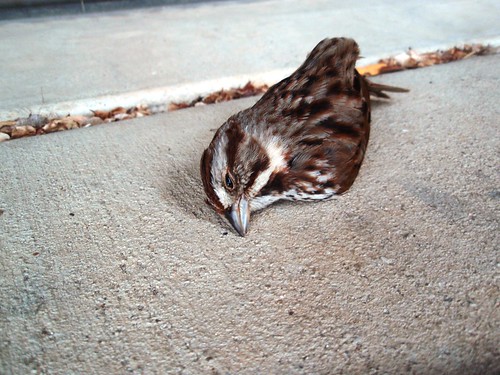
16) Hakan Lindquist's
My Brother and His Brother, translated from the original Swedish, tells the story of Jonas, a teenager whose brother died as a teenager a year and a half before Jonas was born. As he reaches the same age that Paul was when he died, Jonas becomes more and more curious about the brother he never met, discovering his diaries and the secret love affair with a classmate that Paul was keeping from their parents when he died. Jonas' quest to know his brother and understand the loss at the center of his family also turns into a quest to understand himself. I liked this, but the whole story has a little bit of a detached quality. Jonas views both the past and the present as someone outside of the events of both.
17) I spent the entire month of April reading the 1000+ page
Sherlock Holmes: The Complete Novels and Stories Volume 1. Here are the things that I learned:
a) Sherlock Holmes is a druggie. If he's not shooting up, he's hanging out in opium dens, and it's all because he's bored.
b) Doyle must have gotten tired of writing the character, as there is not only a story where he is killed off, but later a story where he is clearly described as retired and no longer taking cases.
c) Holmes is a dick. He's rude and abrasive to Watson, berates him for being a bumbling incompetent during a stakeout, and toward the end of the book criticizes the way that Watson writes about him. He seems incredibly smug, all the time, like I think I was to everyone I thought was dumber than me in high school.
d) I think I got smarter while reading, or the tricks became more apparent, because I started to figure cases out toward the end of the book.
e) Holmes is the world's greatest detective, but not the world's greatest policeman. More often then not, he ends up letting the people go.
I took a long break before I launched into Volume 2.
18) I read
Catching Fire, the second book in the "Hunger Games" trilogy. It ended on a cliffhanger, and was much less derivative than the first book. And then I made a terrible mistake: rather than just drive down the street to pick up the third book and immediately resolve the cliffhanger, I for some unknown reason went online and ordered it, and then spent over a week raging that it wasn't here yet and I was an idiot.
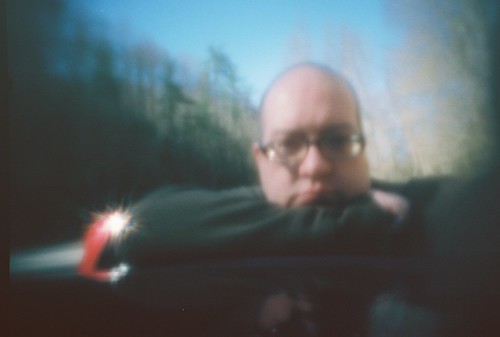
19) I found Megan Abbott's
Bury Me Deep in my stack of books that needed reading, and it distracted me from the pain of that third "Hunger Games" book not being here yet because I was a moron who ordered it instead of just driving to the bookstore three stoplights from my house. Anyway, it was the darkly entertaining story of married 1930's doctor's wife Marion Seeley's descent into drinking and adulterous madness, with a little bit of lesbianism and some dismemberment thrown in.
20) Since I'd been reading so many kids books lately, I tried John Grisham's foray into young adult literature:
Theodore Boone: Kid Lawyer. The first in a series, it introduces us to Theodore Boone, only child of two lawyers, who spends his whole life hanging out at the courthouse watching trials and talking to judges, and all of his classmates come to him to ask about legal troubles like their brothers getting arrested for pot possession or their dogs being impounded for running around without a leash. In this story, Theo becomes aware of a secret witness who can turn the tide of an ongoing murder trial, and has to figure out how to protect him while convincing him to come forward. It wasn't a bad story, but seemed written at about the same level as regular John Grisham books.
21) I finished
Mockingjay, the third book of the Hunger Games trilogy. The ending was surprising, and by the middle of the second book she had veered well away from the derivative source material and into more original territory. I didn't like two things about this:
a) It didn't need the epilogue. It almost feels like she wrote that just so she wouldn't get asked to write a sequel to the trilogy.
b) There's a deliberate slowdown of action at the beginning of this book. Structurally, I can see why, but with the last book ending on a cliffhanger it felt like the story ground to a halt at the beginning of this one.
I liked it a lot, though, and think it turned out to be a quality series.

22) Merrill Markoe's
Cool, Calm, & Contentious was a book of humorous essays about living with dogs, finding love, reviewing her mother's travel diaries after her mother's death, living through fires in Malibu, and other things, but there's one essay about her sexual assault in college that is distinctly unfunny. I'm not saying you can't use humor to work through that, but the jokes all fall flat and the tone throws off the whole rest of the book. It's jarring to go from, "I never slept in that apartment again and my friend stood guard in the door while I packed all my belongings" to "My dogs wake me up by licking my arm", and I feel like an editor should have moved that story to a different point in the book or to a book where it fit in better.
23) Joyce Carol Oates'
Black Water tells the story of bright, vivacious young Kelly Kelleher, who meets a Senator at a 4th of July party on an isolated island, lets him drive her toward the ferry even though he's drunk, and then drowns when the car misses a turn and ends up underwater upside down. Anyone familiar with American political dynasties knows this story already, and Oates doesn't really add anything new.
24) Jay McInerney's
Model Behavior tells the story of bored celebrity journalist Connor McKnight, who drifts through a breakup with his model girlfriend while drifting through the celebrity-obsessed clubs, bars, and lunches of New York City and trying to deal with his flawed family. Some of this book is funny and amusing, but there are a lot of parts that you can tell are intended to be funny and amusing and just aren't.
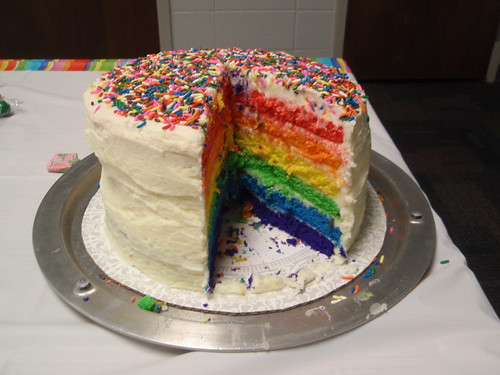
25) Stephen King's
Full Dark, No Stars was a good collection of slightly morbid short stories. While his novels have seemed rather derivative for the past few years, his short stories seem to still be holding up ok.
26) Erin Kelly's
The Dark Rose was good, but not as good as
The Poison Tree, her first novel. It tells the story of Paul, a young man on a court-mandated community service placement to a historic garden, and the affair he starts with Louisa, the garden supervisor, who has been running from a terrible secret in her own past for twenty years. Now, with the two of them together, all of their secrets come catching up at once to destroy them.
27) Chuck Palahniuk's
Fugitives and Refugees was a fun, but hard to classify, tour of Portland, Oregon. Part travel guide, urban legend compendium, history lesson, restaurant review, and snippets of memoir, it makes me want to go visit. I do have a minor quibble, though: Palahniuk claims that the 33 foot tall 10 Commandments replica in Portland is the largest in the world, but I beg to differ,
having visited a larger one.
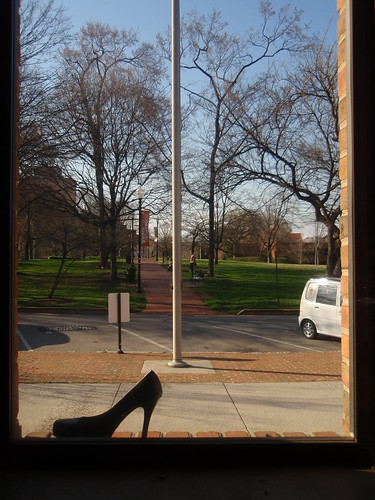
28) Michael Jan Friedman's
The Tomorrow Men was a novel about the Ultimates, the team that most people watching movies last summer know as the Avengers. The team is confronted by a quintet of high powered visitors who claim to be from the future and want their help to "fix" the timeline. Most of the novel is spent with the team trying to decide whether to trust them or not, but in the end they turn out like most visitors from the future in comics turn out, and have to be defeated. (I don't feel bad spoiling this, because most of you are probably not going to go seek out an out of print Avengers novel, anyway.)
29) Mary Higgins Clark's
I'll Walk Alone tells the story of Alexandra "Zan" Moreland, a divorced single mother whose son was abducted two years ago. Zan is convinced that someone is impersonating her, stealing her identity, buying things on her credit cards, buying plane tickets in her name, but when she is about to report it to the police, shocking new photos surface that appear to show Zan adbucting her own child. Now the police are closing in on her, no one believes her, and with her history of blackouts she isn't sure herself if she has a dangerous split personality or if someone really is trying to assume her identity to destroy her. This was pretty good, and would probably be a good travel book: absorbing, but not really requiring great thought.
30) Max Barry's
Company had me snickering from the very first chapter all the way through the end. It tells the story of Jones, a recent graduate, who takes a job at Zephyr Holdings, a company that doesn't seem to make anything and doesn't seem to have any customers besides other departments within the company. Jones decides to make some changes and gets way, way more than he bargained for, with increasingly absurd and hilarious results.

31) I picked up a copy of J. Harvey DeHoney's 1929
From the Ball Room and Dance Halls to Hell because it was mentioned in that Chuck Palahniuk book about Portland, and it's kind of interesting in a pulpy sort of way. It tells the story of twin heiresses Dorothy and Helen, young women living in Chicago and known to frequent dance halls for a bit of fun. While Helen finds love with a charming ballroom owner, Dorothy falls in with a shameless French gigolo, falling into a web of nightclubs, drinking, counterfeit money, murder, extortion and, after she is kidnapped to the South Pacific to escape the murder trial of the century, disease, debasement, opium, prostitution, and her eventual destruction. Also, someone gets shot with an icicle and someone gets eaten by a shark. There's also a section at the back with helpful advice for young women on how to avoid trouble with drink and dancing, for young men on how to treat young women, and for parents on how to raise and protect their daughters.
32) I realized a few years ago that I've watched
Fight Club a bunch of times, but never actually read it, so I picked up a copy of the book. While reading, it was pretty much impossible to separate the book from the movie, in my head, and I ended up watching the movie again while finishing the book. As such, it's also pretty difficult to rate the book as a separate entity. There are some things that are a little different, but overall it was like having a narrative for the film.
33) I noticed a second Maxx Barry book on my "to be read" pile, so I read
Syrup, his satire of marketing and the soda industry, and enjoyed it. I think this had a better story, but I thought
Company was funnier.

34) Bill Bryson's
In A Sunburned Country made me want to visit Australia. His writing is so wry, light, and funny that even driving across the featureless Australian desert sounds fun. Even when he was going on for page after page about venemous, poisonous creatures that apparently infest every inch of Australia, I was thinking, "That sounds great!"
35) I read
50 Shades of Grey,
wrote a blog entry about it, and want to continue blocking it out of my mind.
36) Douglas Coupland's
The Gum Thief was good, but left me sad. It is the story of Roger and Bethany, two coworkers at Staples who communicate via a diary notebook in the breakroom and a series of letters but vow not to acknowledge each other in person, and when I first finished it I thought it was a hopeless novel that somehow manages to leave you with a little hope. After I had an evening to reflect on it, and got a horrible night's sleep, I decided that it didn't leave me with a feeling of hope after all, or, if it did, then it was false hope. This novel was bleak and hopeless, but still good.
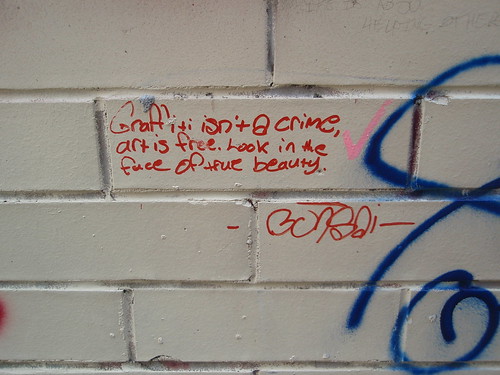
37) John Sclazi's
Redshirts was hilarious, touching, and thought provoking, and best of all was wrapped in an homage to science fiction television shows. It tells the story of five ensigns recently transferred to the premier spaceship in the Universal Union's fleet, and how they immediately discover that all of their predecessors were killed on away team missions. As a matter of fact, red-shirted ensigns die on away team missions on a fairly regular basis on this ship, but the captain, science officer, and navigator always survive, and then the ensigns find out that there's a really, really good reason why.
38) Noel Hynd's
Ghosts tells the story of a murderous ghost on Nantucket, and the actress, police detective, and minister who team up to fight it. This was ok, and well written, but nothing about it really stands out. I guess it would be a good beach/stuck on an airplane book.
39) Meryl Gordon's
Mrs. Astor Regrets gave a short biography of noted philanthropist Brooke Astor, before delving into the sordid tale of her grandson suing her son for forcing the 104 year old Brooke to live in squalor while he looted her estate. It was a little slow at first, but then it was all "ripped from the headlines", and then I realized that it seemed ripped from the headlines because they actually did a "Law and Order: Criminal Intent" based on this.

40) I didn't know that the movie
Big Fish was based on
a novel by Daniel Wallace, so I was excited to see a copy at the used bookstore and picked it up. You know how people always tell you that the book is better than the movie, but sometimes they're wrong? This would be one of those times. In the same way that the
V for Vendetta movie does a better job of telling the same story, the movie "Big Fish" does a better job of telling the story than the book did. Not to say that this is a bad book, since it made for a nice evening read, but the movie is better from both a character standpoint and in conveying that sense of wonder.
41) If you are childless and thinking about maybe still having kids someday, you probably should not read Lionel Shriver's
We Need to Talk About Kevin, a story told in letters from a school shooter's mother to her now-absent husband.
42) Mark Z. Danielewski's
Only Revolutions is a love story told in two parts on each page, with the top half of the page right side up and the bottom half upside down. You're supposed to start at one cover, reading Sam's version for 8 pages, then mark your place, turn the book over to start at the other cover, and read Hailey's part for 8 pages, and you keep doing this for 8 page intervals until you finish the book. Unfortunately, turning the book repeatedly to read it that way is the most interesting thing about it, and the novelty wears off fairly quickly. The story itself is written as free-form stream of consciousness, so it's hard enough to follow without interrupting yourself every 8 pages, and when I was finished all I could think was that the whole thing wasn't worth the effort.
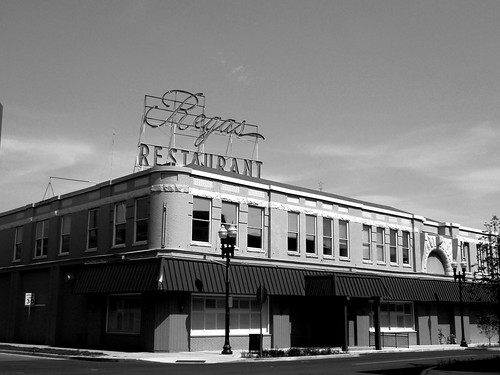
43) Pearl Buck's
Voices in the House tells the story of a wealthy family, and their cook's crazy daughter who wants their house for herself. She starts trying to drive a wedge between family members, and she's a scheming conniver, and then all of a sudden someone has knitting needles in their eyes and someone busts out the straightjackets. Not a bad book, and there were some interesting discussions about married life and the battle of the sexes.
44) Douglas Coupland's
Hey Nostradamus! was my second school shooting novel in a week, which was an odd and unplanned coincidence. This is a novel told in four parts by the girl who died, the guy who loved her, the woman who loves him, and his father, who wants to fit all of this into his religious view of the world. It was an interesting consideration of life, death, and faith, and left the reader to draw their own conclusions about the answers.
45) Pablo de Santis'
Voltaire's Calligrapher was a short, fun adventure in which Dalessius, a young calligrapher, goes to work for Voltaire toward the end of Voltaire's life. Dispatched on a courier mission, Dalessius finds himself entangled in a plot with rogue priests, assassins, automatons, a corpse delivery service, and a beautiful girl. This was a fast read, but nicely diverting.
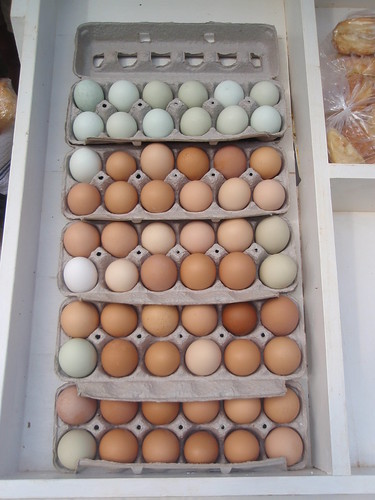
46) Right after I finished the last book I thought, "I want to reread
Interview With the Vampire," so I did. It's still entertaining and diverting, and while the writing isn't top notch it does still outshine the Twilight books.
47) I feel like I missed something in Ray Bradbury's
Dandelion Wine, which is supposed to be a heartwarming classic, a nostalgic tale of Doug's summer as a young boy in 1928 from the first day to the last. It's a lot of small stories about the neighbor and the people in town, but the whole time I was reading I kept thinking, "Is this going somewhere? Is there a point?" and that was even after they threw in a love affair and a serial killer and the midnight theft of the wax dummy from a fortune telling machine. It was like a memoir where nothing important happened.
48) Eric Liu's
The Accidental Asian was this year's "Life of the Mind" book for the incoming freshmen. A series of essays on race, origin, ethnicity, and identity by a second generation Chinese American, it was interesting but really hard to get into, and I had to force myself to read the first half before it started picking up.

49) I know that no one will believe me, but Stephenie Meyer's
The Host wasn't bad. It fell apart a little at the end, as if Meyer knew where the ending should go but then didn't want to actually write it, but overall it was interesting science fiction.
50) Mark Mills'
The Information Officer tells the story of Max, a British information officer on Malta during WWII, and how he gets involved in a murder investigation on the island on the eve of German invasion. There are explosions, intrigue, spies, murders, crusty old Maltese detectives, and slowly building tension. It was a really good book.
51) Adam Leith Gollner's
The Fruit Hunters is a book all about fruit: breeding fruit, searching for new fruits, bringing fruit to the market, trekking through the jungle to find more fruit, smuggling fruit, becoming a fruit breeding billionaire, etc. It seems kind of like it should be boring, but the writing is engaging and the book turns out to be pretty interesting. I learned that the sugar industry had miracle fruits banned in the US, and that we as a society eat less than a hundred of over 20,000 different fruits in the world. Reading this even made me want to go eat fruit, weird exotic fruit that tastes like candy and pudding and might get all over my chin and hands.
Also, you should google "coco de mer", also known as "the ladyfruit" to see what it looks like that makes them call it that.
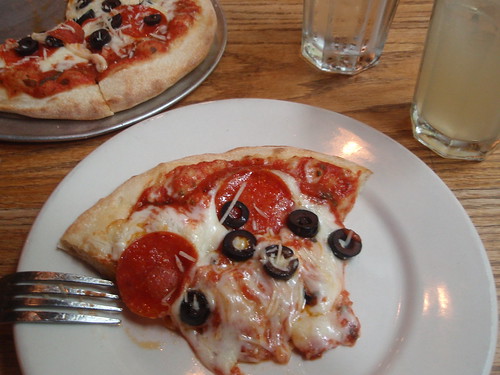
52) Megan Abbott's
Dare Me was good, like all of her books are. It tells the story of the arrival of a new cheerleading coach who is fairly inappropriate with her favorite students (drinking parties at her house, several things that are even worse), and of her power struggle with Beth, the ruthless cheerleading captain. Things go more and more awry until there are dead people and rapes and police and a climax that I guessed maybe two pages before it happened. I pretty much ravenously devoured this.
53) I may have been a little hard on Gregory Maguire when I read
A Lion Among Men, the third in his Oz books, because at the time I said that he had taken what was an original and innovative story in
Wicked and slowly watered it down with each book released. Now that I've finished
Out Of Oz, I understand that he was plotting a much longer story, and I should have had more faith. This book ties up everything, and stars pretty much everyone who has ever popped up along the way in the previous three books. It also manages to tie the storyline back into the original Oz books, and manages to do so without a trite happy ending. It was a slow read, but worth it.
54) Don DeLillo's
Point Omega is a short story about an aging war planner, a documentary filmmaker who wants to make a move about him, and the planner's daughter, and the trip they all make to an isolated house in the desert.

55) I've never read anything by Graham Greene, but my friend Leo was talking about
Brighton Rock on her blog and my friend Donna who works at the library was telling me that I need to use the library more, so I requested a copy from the library, and it turned out to be a good choice. In the coastal resort city of Brighton, Pinkie is a 17 year old trying to build a criminal empire. Ida Arnold is the bar floozy nipping inexorably at Pinkie's heels, determined to find justice for her friend Fred, who Pinkie killed. Every move Pinkie makes to escape Ida's relentless pursuit digs him deeper and deeper into hell, and the reader is along for the ride.
56) I see Jeffrey Steingarten as a judge on Food Network shows all the time, so I decided to pick up
The Man Who Ate Everything when I saw it at McKay's. A collection of essays that he wrote as the food critic for "Vogue", it's often hilarious but also educational, and includes a bunch of recipes. Also, the chapter on recipes from the back of food packages makes me want to try the Ritz Cracker Mock Apple Pie.
57) Marc Acito's
Attack of the Theater People doesn't know if it wants to be a comedy, a nostalgic look back at the early '80's, a financial mystery, a coming of age story, a madcap caper, a satire of performing artists, or what, so it's sometimes hard to maintain interest. It tells the story of Edward, who gets kicked out of Juilliard for being too "jazz hands" and not authentic enough, and how he bounces through different jobs and odd adventures with his friends for a year, trying to make his dream of appearing on Broadway come true.

58) Gillian Flynn's
Dark Places was good, but kind of morally icky at several points. It tells the story of Libby Day, the only surviving family member of her brother's possibly Satanic murder spree that killed their mother and two sisters. Years later, Libby is a bitter, broken person, and decides to take money from the Kill Club in exchange for interviews about the crime. Libby sets out to reconnect with all of the players in this twisted, sordid story, not realizing that her investigation is putting her more and more in danger. I liked that the story was told in chapters alternating between the present day investigation and flashbacks to the last day in the life of the Day family, because it really builds tension since you know what happens at the end of that day, but I didn't like that part of the solution to the mystery of what really happened came kind of completely out of left field.
59) Richard Matheson's
Other Kingdoms tells the story of Alex, a shell-shocked veteran of WWI trench warfare and the bizarre adventure that he stumbles into when he seeks out a fallen comrade's home in England. Things in the village seem a little odd at first, and then there are witches, griffins, fairies, and a lot of danger. It was interesting, but the dust jacket should have marketed it as fantasy, rather than horror.
60) Isabel Wilkerson's
The Warmth of Other Suns was sweeping and epic, but also personal and heartbreaking. It tells the story of the great, decades-long migration of African Americans from the south to the cities of the north from 1915 to 1970, but does so by mixing factual data with the personal stories of three people who moved north at three different times. By the end of the book you feel like you know those people, and you're a little sad to let them go.
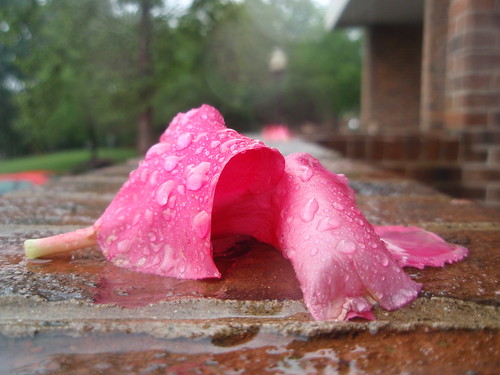
61) Gillian Flynn's
Gone Girl is a dark, messed-up story about a man whose wife goes missing and the truth about their marriage, about him, and about the wife. I don't want to give anything away, but it's so good that I woke up at 4 AM and was like, "I can totally finish that book! Out of bed! Now!"
62) I read Henry James'
The Turn of the Screw because every year I see it on "scary book" lists at Halloween and I've never read it. It tells the story of a young governess hired to go to an isolated English estate to care for two young children, and her growing suspicion that the children are being haunted and stalked by the spirit of the last governess and her deceased lover, a male staff member of the estate. Since no one but the new governess can actually see the ghosts, it's equally possible that she's insane. Either way, the book didn't scare me, but I can see why people would think it was creepy.
63) Gail Simmons'
Talking with My Mouth Full was light and entertaining. Simmons tells the story of her lifelong relationship with food, her early years as a line cook and culinary school student, her time as Jeffrey Steingarten's assistant, and how she ended up at "Food & Wine" and eventually on TV. She also tells some behind the scenes stories about "Top Chef".

64) A friend told me that Kami Garcia and Margaret Stohl's
Beautiful Creatures was "better than Twilight but not as good as the Hunger Games", which turned out to be correct. It's the story of a basketball jock in a small town and the new girl at school, the niece of the town recluse, who might also be a witch. They find themselves irresistably drawn to each other but caught up in magical forces beyond their control. It wasn't bad, but it will be a while before I look for the sequels.
65) Dan Simmons'
Song of Kali guarantees that I am never going to Calcutta. Ever. The story concerns an American poet who goes to Calcutta with his wife and infant daughter to pick up a manuscript from a famous author who has disappeared under mysterious circumstances. Rather than just taking the book and leaving, the poet decides to investigate, and then all hell breaks loose.
66) I finished
The Complete Sherlock Holmes Vol. 2 and three things jumped out at me:
a) Doyle really wanted to stop writing about him. The guy was killed off and retired multiple times, but just kept coming back for more stories. I'm guessing Doyle was pressured to continue writing, and grudgingly did so. By the end, there isn't even a sense of fun in the stories, just "We had a client, here's the case, we solved it" for ten stories in a row.
b) Doyle hates people from the USA. Characters of many nationalities show up throughout the stories, but every person from the United States is uniformly uncouth and is a criminal of some sort.
c) I felt like he was recycling some of the twist solutions toward the end, but couldn't think of when he had used them before. They just felt familiar.
That was a lot of Sherlock Holmes.

67) After reading Gillian Flynn's
Sharp Objects all I can think is, "Oh my God, Gillian Flynn, why are you so messed up?" It was good, like her other books, but also made me a little squirmy inside, like her other books.
68) Back during the election, everyone was talking about Ayn Rand and how evil she is and blah blah individualism and blah blah blah, and I felt like maybe I should at least read something of hers to better inform myself, so I read
The Fountainhead. The story of an architect and his struggle to remain an individual against a world that demands conformity, it's a good, engaging book filled with slightly disturbing ideas.
69) Halfway through
The Raising one of the characters asks another, "What the hell is going on around here?" and rattles off a list of weird, seemingly divergent plot points, and I realized that at that point in the book I felt exactly the same way. There's a guy with a dead girlfriend, amnesia, a girl with a dead boyfriend, something creepy at the honors hall, something creepy at the music society, something creepy at the sorority house, maybe a ghost, maybe a conspiracy, a professor of the dead and undead with a dying marriage, frenemy roommates, and the first half has a lot of sex but it does take place in a college freshmen hall so maybe that's not surprising. Somehow all of these plot elements do come together, although the end is kind of a non-ending and rather unsatisfying.

70) I thought David Kamp's
The United States of Arugula was a little bit lopsided in its coverage of "American" cuisine. The story of how the US became a foodie, gourmet-loving nation and developed a uniquely American cuisine, it spent over a third of the book lovingly covering California cuisine and the farm-to-table organic food movements, but spent less than half of a chapter talking about Tex-Mex/Southwestern food or Cajun/Creole food. Both of those cuisines are uniquely American, have been elevated by chefs to the level of fine dining, and have spread nationwide (do you know anyone who hasn't eaten salsa or nachos?), but the book barely mentions them.
71) Wil Wheaton's
Dancing Barefoot was a short, funny collection of essays. Even the sad parts were funny.
72) Chad Kultgen's
The Lie is easily the most misogynistic book that I've ever read. The book is the story of two childhood friends, Kyle and Brett, who go away to college and meet Heather, and their four years together, but it's also the story of how Brett, the wealthy son of a famous family, views women as materialistic semen receptacles to be degraded for his amusement, and he amuses himself in graphic sexual detail with three to five girls every chapter. It's four hundred pages of relentless degradation against women, even worse than when I've read pornography, because at least there the degradation and humiliation is less direct. Based on Heather's behavior it turns out that Brett is right about the nature of females, at least in this book. It wasn't poorly written, but it left me feeling disgusted and kind of sad that I'd read it.

73) I can't tell if the stories in David Sedaris'
Holidays on Ice were printed already in his other books or if I've just gotten to the point where all of his stuff sounds the same. They were entertaining, but I feel like I've read them before.
74) Just under the wire, I finished Chuck Palahniuk's
Snuff while eating lunch on December 31st. It's the story of aging porn star Cassie Wright, who wants to go out in a blaze of glory by having sex with 600 men in a row, on camera, and the story of the men who are waiting to have sex with her. Number 137 is an outed actor who wants to convince his agent that he's actually straight. Number 72 thinks that he is the baby that Cassie gave up for adoption years ago, and that this is the only way to meet her. Number 600 is an over the hill porn star who wants to rekindle his own career by being the guy who screwed her to death, and if she's not going to die on her own after having sex 600 times in a row then he's got a cyanide capsule hidden in his necklace to move things along. Through it all, relentlessly calling numbers, is Shiela the production assistant, and she has an agenda of her own. Oddly, even though this is a story about pornography, it felt significantly less degrading and misogynistic than that book at #72.
And that's it for books this year. For next year, I'm setting my goal at 52 again, like always, and we'll see what happens.









